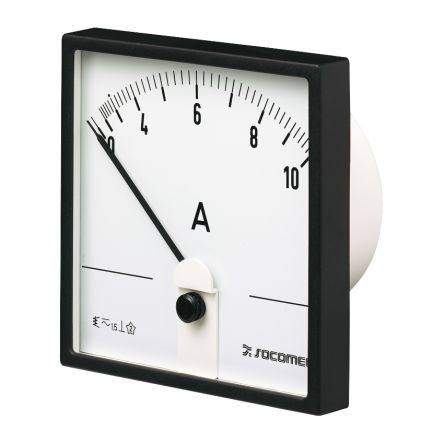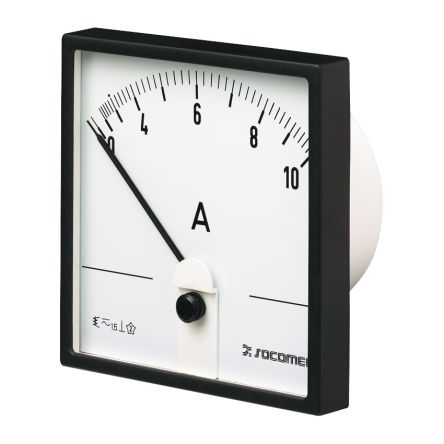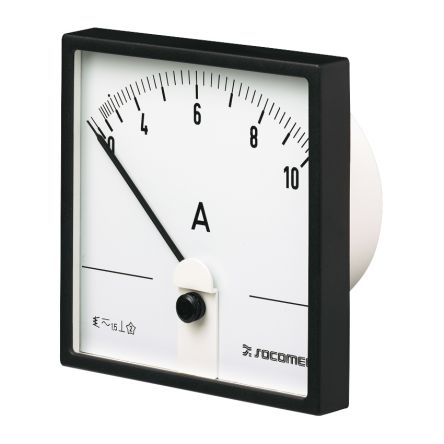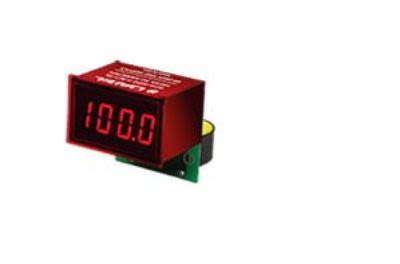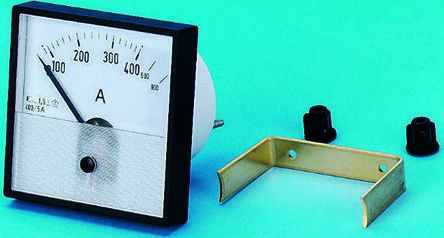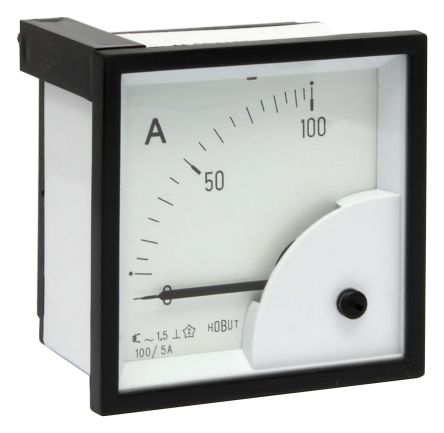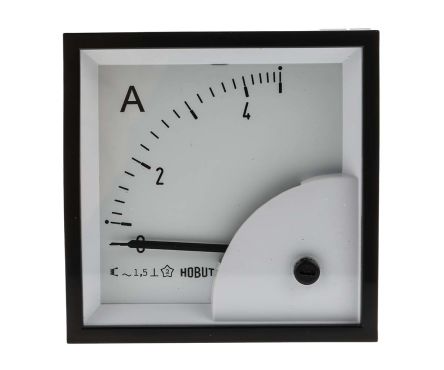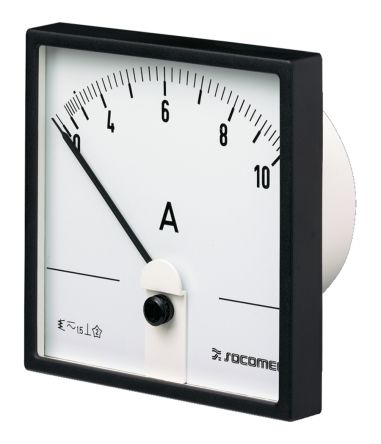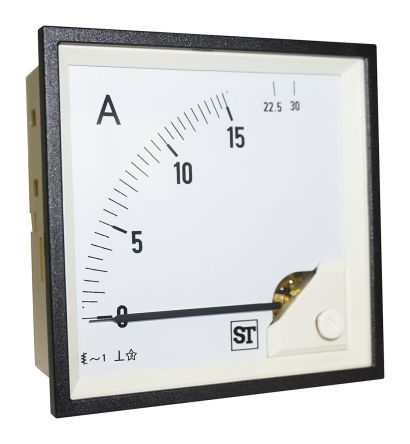- Automation & Control Gear
- Cables & Wires
- Enclosures & Server Racks
- Fuses & Circuit Breakers
- HVAC, Fans & Thermal Management
- Lighting
- Relays & Signal Conditioning
- Switches
- Batteries & Chargers
- Connectors
- Displays & Optoelectronics
- ESD Control, Cleanroom & PCB Prototyping
- Passive Components
- Power Supplies & Transformers
- Raspberry Pi, Arduino, ROCK, STEM Education & Development Tools
- Semiconductors
AC Ammeters
Ammeters - named after ampere meters and amperes (also known as amps in the electrical industry) - provide an accurate way of measuring and displaying current within a circuit, which helps with detecting problems such as unusually high or low levels of current.
Whereas an amp is a unit of electric current, whereas a volt is a unit of electric voltage.
Electric circuit issues are often detected by ammeters. These devices can detect weak or strong currents, which can be caused by a variety of issues. It is essential to have this type of equipment for diagnosing defective electrical items, so people often use ammeters for everyday tasks like changing fuses.
The ampere level of the current is displayed using either an analogue scale or a digital readout. The current is presented in a draw (how much current flows) or continuity (how uninterruptable the current is).
What is a Digital Ammeter?
Digital ammeters display their readings using a digital display. They are ideal for use in facilities with poor lighting, which makes them useful in factories and industries. In some models, digital ammeters show alerts when certain conditions are met, such as when the current reaches a certain value.
In digital ammeters, the bar graph scale can be programmed to include both minimum and maximum values, enabling a custom scale, depending on the needs of the application.
The digital meter can also be set to trip when values exceed, fall behind, are between or are outside set points. An AC Ammeter can be used to measure the Alternating Current in a circuit
What is an Analogue Ammeter?
Using a dial and pointer, an analogue ammeter measures current. It is possible to find different types of moving ammeters such as moving iron ammeters, moving coil ammeters, or moving magnet ammeters. Moving iron ammeters are commonly used in most applications since they are capable of measuring both direct currents (DC) and alternating currents (AC).
Circuits with erratic loads can be detected with analogue ammeters. High ampere levels may indicate short-circuiting, unintentional grounding or indicate a defective component in the network. There will be a high resistance in the circuit or a weak flow if there is a low current flow.
Types of Ampere Meters
There are 5 types of analogue panel ammeters available on the market today:
Moving coil
It works by magnetic deflection, in which a coil moves in a magnetic field when current passes through it. A modern version of this device was invented by Edward Weston with two spiral springs providing the restoring force.
Moving magnet
A moving magnet ammeter works in a similar manner to a moving coil ammeter, with the exception that the coil is placed inside the meter case, while the needle is moved by a permanent magnet.
Compared to moving coil instruments, moving magnet Ammeters can carry more current, typically several tens of amps, since their coil can carry thicker wire, so there is no hairspring to carry the current. Interestingly, some of these ammeters contain zero hairsprings, the restoring force being provided by a permanent magnet instead.
Moving iron
Moving iron ammeters rely on iron, which moves under the influence of electromagnetic force produced by wire coils. Unlike the moving-coil ammeter, this meter works on both direct and alternating currents.
Popular Searches
Related links
- Trumeter APM-AMP Digital Ammeter AC 68mm x 68mm, 1 %
- Clamp Meters
- Beha-Amprobe AMP 330 Clamp Meter Max Current 1000A ac CAT III 1000V
- RS PRO Digital Ammeter AC ±0.5% + 1 Digit
- Beha-Amprobe AMP 320 Clamp Meter Max Current 600A ac CAT III 600V
- RS PRO Solar Power Meter & Digital Multimeter DT-1307
- Energy Meters
- Schneider Electric 3 Phase LCD Digital Power Meter, Type Power
